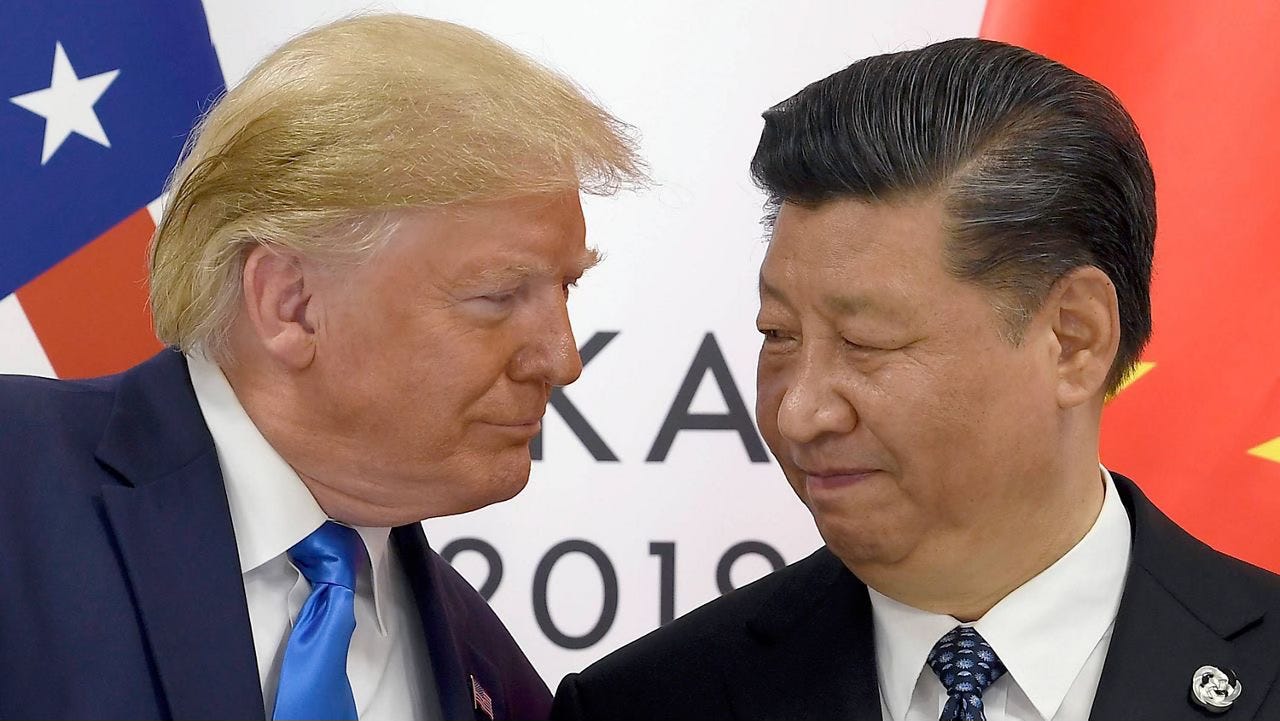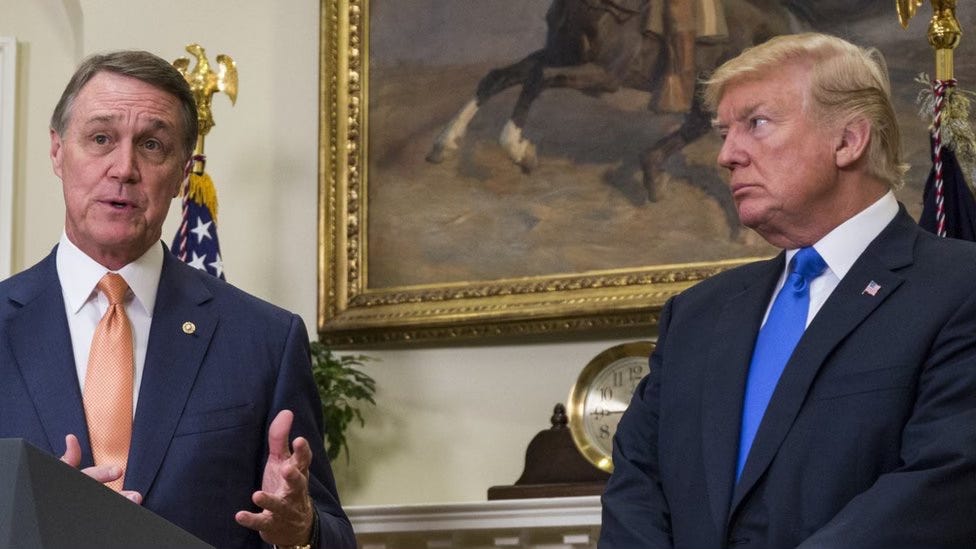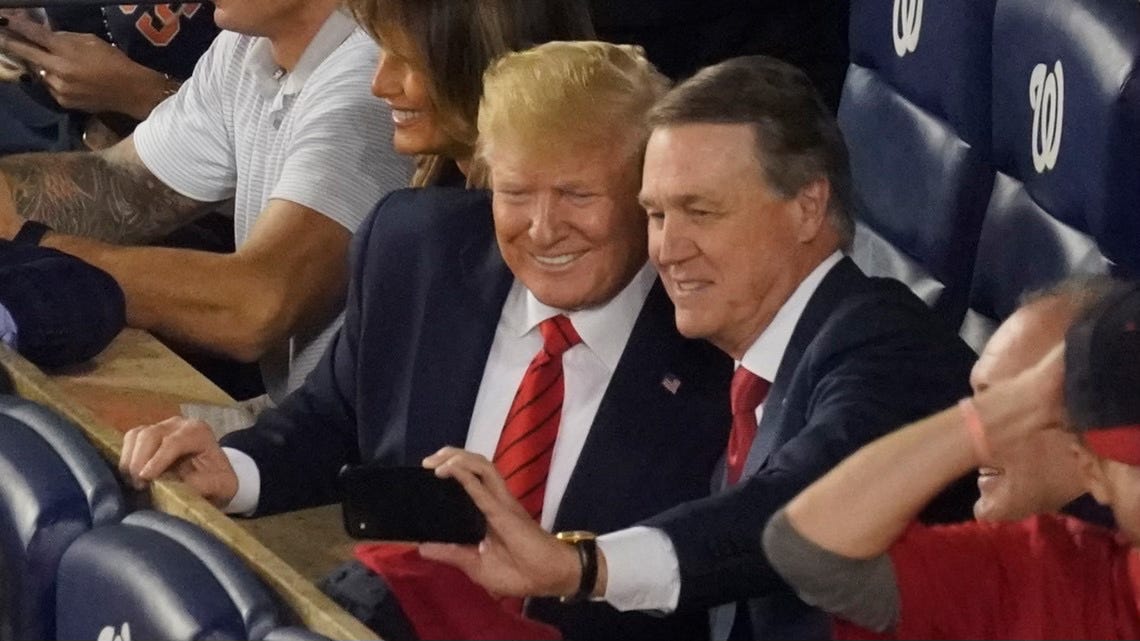Mahoney on Trump Invitation to Xi
Trump will invite Chinese President Xi Jinping to his #inauguration, Trump's pick for ambassador to China, Trump’s pick for China ambassador could be bad news for Beijing.
Trump Invites Xi to Inauguration
Featured contributor Prof Josef Mahoney was interviewed by Ziwen Zhao with South China Morning Post #scmp on reports that Trump will invite Chinese President Xi Jinping to his #inauguration.
Full comments:
First, generally, these kinds of visits require careful protocol negotiations and security arrangements. Can these be accomplished before Trump has gained control of the State Department and other government organs?
Second, why would President Xi want to attend Trump's inauguration?
Does it reflect a kind of "royal prerogative" on Trump's part, to have other leaders attend and acknowledge his "crowning?" China would be sensitive to such an appearance. Therefore, it might be vital that there were other reasons to attend. For example, would Trump offer a summit to help resolve some key issues immediately after taking office? Would the two leaders be able work out some sort of deal or detente from day one?
Again, much of this would have to be negotiated and agreed upon beforehand, and I don't think the Trump team, which is scrambling to handle the transition and doesn't even have any cabinet officials confirmed yet, wouldn't be able to offer much at this time, if anything.
Furthermore, while it's clear that Biden's containment strategy has failed in China's case, it's also likely that Trump wants to press his own agenda to reestablish some kind of leverage before re-negotiating bilateral agreements (already an optimistic outlook).
Consequently, while it's not out of the question that Xi might attend, it's more likely that #china might send another official in his place. However, if Trump also invites officials from #taiwan, then we can assume a boycott.
https://www.linkedin.com/feed/update/urn:li:activity:7272887345551482881/
Trump's pick for ambassador to China
Featured contributor Prof. Josef Mahoney was quoted by #bloomberg assessing Trump's proposed pick for US ambassador to #china.
Full comments:
Perdue is an interesting choice insomuch as his chief qualification is his steadfast support to overturn the last election results four years ago in Trump's favor. This demonstrated the sort of loyalty over law that Trump appears to value.
Furthermore, in his business career he was self-admittedly famous for #outsourcing American jobs overseas. This seems fundamentally at odds with Trump's vision of economic renewal.
China is likely to view him as a politically savvy businessman who has the president's ear. He will be welcomed to #beijing with the hope that his lack of diplomatic experience won't distract him from being pragmatic and forward thinking about bilateral relations. He does not appear to be an ideologue when it comes to international affairs, at least not as much as others on Trump's team. He appears opportunistic and adaptive, qualities that might serve the development of better relations once Trump's initial posturing and attempts to build leverage for a new trade deal have matured.
https://www.linkedin.com/feed/update/urn:li:activity:7271474485508079616/
Trump’s pick for China ambassador could be bad news for Beijing
Trump’s choice underscores the administration’s plans for a more confrontational approach to China.
By Phelim Kine
Beijing is so far publicly withholding judgment on Perdue’s nomination. The Chinese embassy in Washington didn’t respond to a request for comment and Chinese Foreign Ministry spokesperson Lin Jian said only “I noted the reports” when asked about Perdue.
Perdue may have a tough time getting confirmed, especially since his shifting stance gives senators on all sides of the China issue something to dislike.
When Trump first imposed steep tariffs on items ranging from washing machines to steel, Perdue criticized them as overly broad. Perdue instead argued for “a more targeted approach” toward balancing U.S.-China trade. A year later in 2019, he was in Beijing with fellow Sen. Steve Daines (R-Mont.) talking up Trump’s tariff policy toward China as essential to “level the playing field.” Perdue has also appeared skeptical about legislation to hold Hong Kong authorities responsible for their crackdown on pro-democracy activists. He expressed agreement with Beijing’s view that the protests were “an internal issue” in an interview on Fox News in 2019. That could fuel friction with a bipartisan coalition of House lawmakers who pushed for a bill that passed the House in September that would strip Hong Kong’s official outposts in the U.S. of their diplomatic privileges.
And Perdue stands out in his past efforts to offshore jobs. The former CEO of Dollar General and a top executive at Sara Lee and Reebok, he was a strong proponent of moving jobs from the U.S. to Asia to save on manufacturing costs. Asked in 2005 about outsourcing U.S. jobs, Perdue said “I spent most of my career doing that.” Some GOP lawmakers may view those comments as a betrayal of Trump’s America First policy, which aims to bring jobs back to the U.S.
Trump’s choice of a former politician rather than a career diplomat is telling. Current U.S. Ambassador Nicholas Burns — who has been in the role since 2022 — began his foreign service career as an intern in the U.S. embassy in Mauritania in 1980.
The Biden administration’s policy toward China was framed around “managing competition” and keeping communication open with Beijing, despite significant tensions over their competing visions for the world. With Perdue, Trump appears to embrace a more aggressive pressure campaign. That’s especially true given other China hawks Trump has tapped for key positions: Sen. Marco Rubio (R-Fla.) for secretary of State and Rep. Mike Waltz (R-Fla) as national security adviser.
In an X post on Thursday, Burns wished Perdue “every success in this important position.” Burns didn’t immediately respond to a request for comment about Perdue’s nomination.
Chinese officials have been evaluating how seriously to take Trump’s threats. On Tuesday, before Perdue was announced, Wang warned that the “future direction” of U.S.-China relations depends on “choices made by Washington.”
They may have their answer.
NB: Megan Messerly contributed to this story






